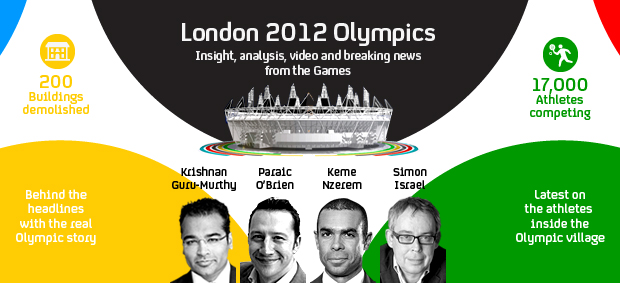Olympic archive: Moscow prepares (1979)
Moscow’s preparations to host the 1980 Games were well underway when ITN visited the Soviet capital in 1979. But then the Russians invaded Afghanistan, and a US-led Olympic boycott followed.
In 1974, Moscow beat Los Angeles for the right to stage the 22nd modern Olympiad, and in the summer of 1980 the Games went behind the iron curtain for the first time, writes Ian Searcey.
It was certainly a propaganda coup for the Soviet Union’s Communist regime, coming as it did at the height of the cold war with the west.
With doubts over the Russians’ ability to create the infrastructure for a successful games or handle the influx of foreign sportsmen, broadcasters and spectators, Martyn Lewis and a suitable furry hat were sent in November 1979 to assess their progress.
Despite the problems posed by the severe wintry conditions, ITN found the Moscow authorities hard at work. Accommodation for the athletes and development of the stadia were well on the way to completion.
Street congestion
Preparations were also being made to deal with the crowds. A large French-financed hotel was nearing completion, and families in the Soviet capital were being advised to send their children away on holiday to avoid congestion in the streets.
That may have been the official line, but the authorities would have been keen to ensure as few Muscovites as possible could be “tainted” by contact with visiting westerners.
Students’ exams were also brought forward, allowing universities to empty their dormitories early to cope with possible accommodation overspill from the hard-pressed local hotels. The youngsters would also then be free to take their place as waiters, interpreters, and “taxi drivers” for their foreign guests.
Robust furniture
ITN viewers were given a glimpse inside the accommodation blocks, with “robust” furniture destined for “factory workers and students” once the games were over. They also saw the perimeter fence being erected around the site for “security purposes”.
Plenty of money had been pumped into the impressive Olympic Stadium, and Lewis marvelled at the “tough” Russians, braving the -40 temperatures to swim in the steamy Olympic swimming pool.
However hopeful the Russian leadership might have been about the PR advantages of staging the Olympics, political concerns resurfaced in December 1979 when Soviet troops invaded Afghanistan.
Olympic boycott
US President Jimmy Carter immediately threatened a boycott of the Games if the Russians did not leave by January 1980, and when it became clear there would be no withdrawal from Kabul, 65 countries joined America and withdrew their teams.
Although many other western governments, including the UK, supported the boycott politically they allowed their sportsmen and women to follow their conscience.
In Britain, Mrs Thatcher pressed sporting bodies and individual athletes to support the position of the US, but in the end the majority of our most prominent hopefuls went to Moscow where Sebastian Coe, Steve Ovett and Allan Wells were amongst the gold medal winners.
